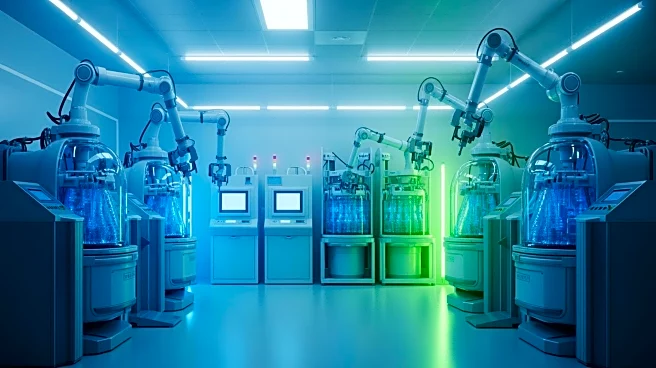What's Happening?
Moderna and BioNTech are addressing the complexities of producing individualized mRNA cancer vaccines, which differ significantly from mass-produced COVID-19 vaccines. These personalized therapies require
tailored manufacturing processes to create specific antigens for each patient, posing logistical challenges such as sample collection and sequencing. Moderna's approach involves using AI to streamline the production process, reducing the time from sample collection to vaccine administration to six weeks. This development is crucial for treating patients with rapidly progressing tumors, as timely delivery is essential for effective treatment. BioNTech is also preparing to discuss regulatory approval based on upcoming data.
Why It's Important?
The advancement of individualized mRNA cancer vaccines represents a significant shift in cancer treatment, offering the potential for more targeted and effective therapies. This approach could improve patient outcomes by providing personalized treatment options that are tailored to the specific genetic makeup of a patient's cancer. The ability to deliver these vaccines quickly is crucial for patients with aggressive cancers, potentially increasing survival rates and reducing the burden of disease. The success of these vaccines could pave the way for broader applications of mRNA technology in personalized medicine, impacting the pharmaceutical industry and healthcare practices.
What's Next?
Moderna and BioNTech are refining their manufacturing processes and assessing how their treatments fit into existing care pathways. Moderna aims to submit for full authorization by 2028, while BioNTech is preparing to engage with regulators if their data proves strong. The companies are also exploring the potential for combining individualized therapies with off-the-shelf drugs to enhance treatment efficacy. As they move forward, the focus will be on overcoming logistical challenges and ensuring timely delivery of these personalized therapies to patients.










